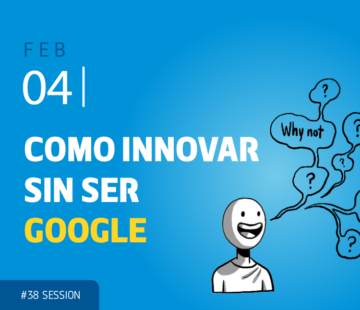For Smart Cities, to collaborate is the smartest thing to do

According to a United Nations report, 70% of the world’s population is expected to be living in cities by 2050. This is why, overcoming many of today’s humankind challenges in areas such energy, water, food, climate change, health, etc. will depend mainly on the success of the so called Smart Cities strategies. But as urgent we consider the implementation of smarter cities, making it really happen still remains a challenge several years after the concept was first coined.
As in many other cases, we think too collaboration should be a key factor implementing a truly transformative Smart City strategy. Considering the broad and diverse kind of stakeholders, expertise, knowledge, technologies, etc. needed for an average Smart City project, it is difficult to imagine any that does not require the commitment and dedication of a collective team.
The idea of a Smart City promises to improve municipal operations and the health and safety of citizens. New models of cooperation and engagement will make a tangible difference for this promise to move to a reality. These are just few of the many possible…
Organizational changes in local administrations
City managers are main actors on the potential gains of properly implementing Smart City initiatives. But many of the challenges they confront in order to achieve efficient outcomes of such initiatives still lie on the way city government is structured. As it happens in many other organizations, many departments and units in city councils are operated in isolation without any or little consideration of other departments. Add to that, an extra layer of red tape and special sensibility about the immutability of roles and positions that sadly are still typical of public government organizations.
But despite these cultural and organizational barriers, when projects need to address such variety of issues as, for instance, transportation systems, law enforcement, community services, water supply networks or waste management, some Smart City projects have become the driver for cultural changes and shifting attitudes that seemed impossible so far.
Sharing experiences and knowledge
“Lessons learned” are an important asset in competitive markets in which proprietary Know How can be easily turned into a competitive advantage. But it does not make much sense for cities to compete with other cities to be smarter, especially in the case of cities at the same continent and in projects funded by the same supranational organization.
Knowledge exchange and transfer is a crucial element of many of the projects funded by the European Union. The GrowSmarter project is one of the most important bets of the European Commission for the smart development of urban areas, and represents one of the only three projects that the Commission has financed under the umbrella of the “Lighthouse”. GrowSmarter brings together cities and industry to integrate and demonstrate ‘12 smart city solutions’ in energy, infrastructure and transport.
Key for the project is the concept of “Lighthouse Cities”, as the 12 smart solutions are being rolled out in designated sites in three cities: Stockholm, Cologne and Barcelona – including industrial areas, suburban and downtown districts, ensuring a sample base representative of many European cities. The idea is for these three “Lighthouses Cities” to show how ‘smart’ can work in practice documenting their journey with regular news updates. This way, the project specifically aims to provide other cities with valuable insights on how the smart solutions work in practice and the opportunities for replication, creating a butterfly effect.
GrowSmarter even considers the existence of five “follower cities” (Cork, Graz, Malta, Porto and Suceava) which role is to work closely with those “Lighthouses Cities” to learn from their experiences. The three Lighthouse Cities will each host a number of study visits and European workshops, providing opportunities to see first-hand technological application of the smart solutions.
Sharing Standards
The performance of a city is intimately linked to its physical and communications infrastructures and the delivery of resources through these infrastructures. At present, the delivery of city services tend to operate in isolation from each other, in silos of activities, governance and information. But new digital infrastructures offer the potential of increased service integration that could ultimately result in services provision cost reduction, natural resource savings and efficiency gains for cities and their inhabitants.
Standards are required in order to accommodate such integration of data. But smart city implementations tend to focus on specific cities or services rather than multiple locations and services. This individual focus in the main cause of the lack of standards across the market. Many organizations and analyst, including the International Organization for Standardization (ISO), advocate the development and generalization of international standards for smart cities.
In UK, the Department for Business, Innovation and Skills commissioned the British Standards Institution to develop a standards strategy for Smart Cities in the county. The strategy identifies the role of standards in accelerating the implementation of Smart Cities. As part of this strategy the Cities Standards Institute is a joint initiative of the British Standards Institution and the Future Cities Catapult bringing together cities and key industry leaders and innovators to work together in identifying the challenges facing cities, providing solutions to common problems and defining the future of smart city standards.
By developing a coherent set of standards that addresses key market barriers, smart city products and services become easier to be widely accepted. Promoters of the consortium consider than an easier acceptance of these products and services ultimately accelerates the growth of the future cities market, first in the UK and then globally. The Cities Standards Institute is also leading a set of programs to help cities, companies and SMEs to implement standards-based solutions and strategies, and to ensure the uptake of smart city standards regionally and internationally.
